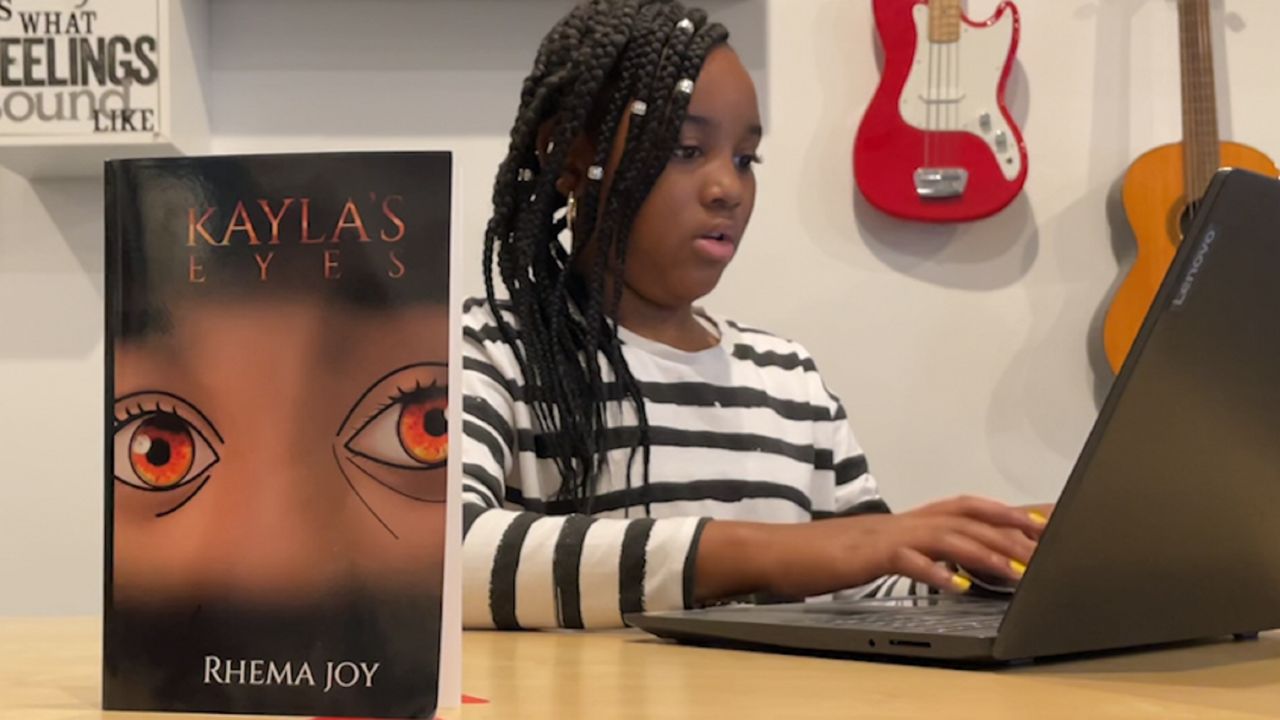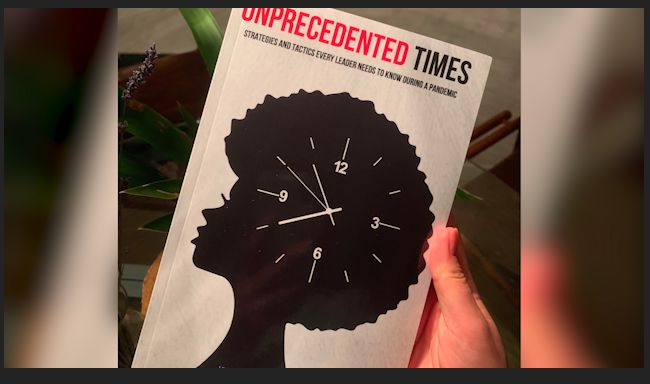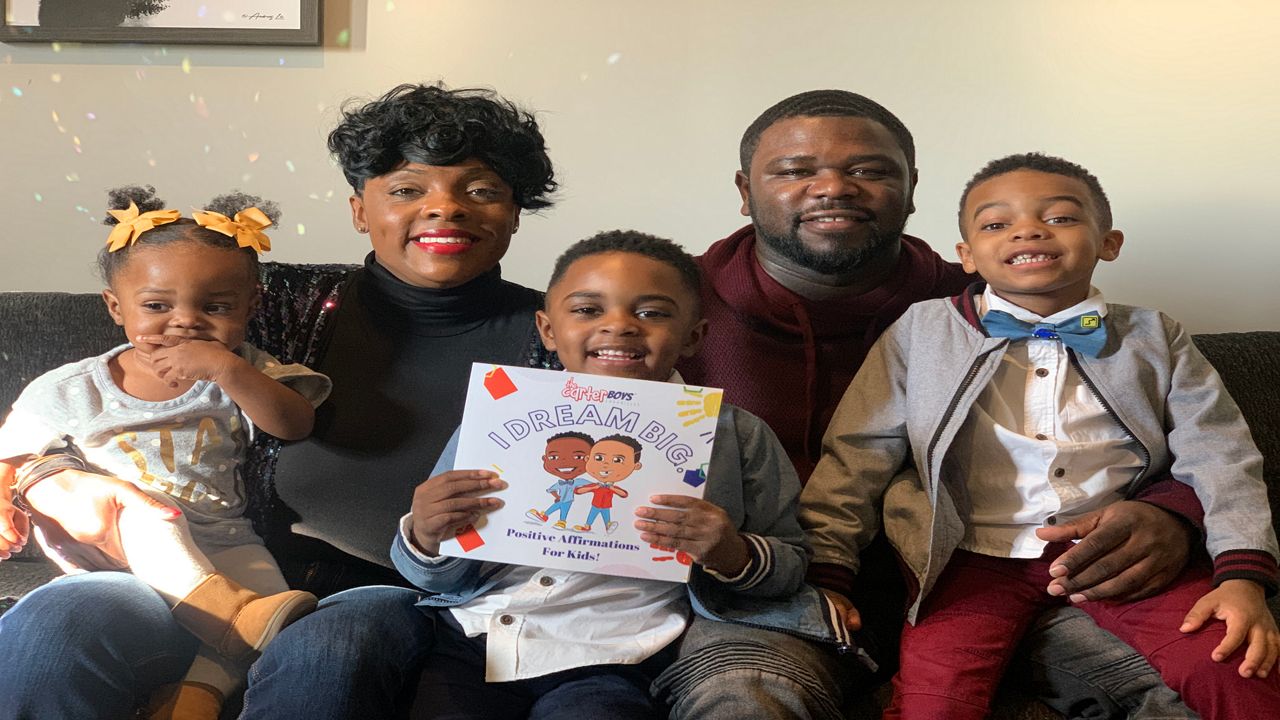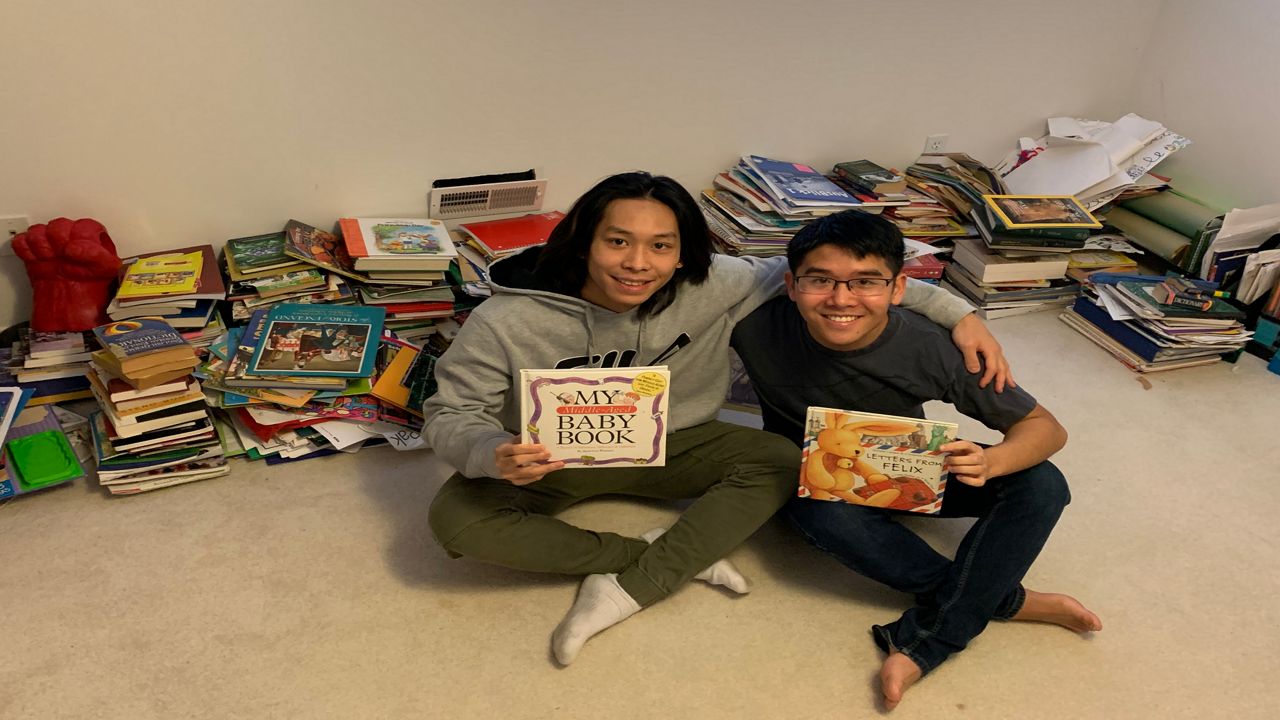COLUMBUS, Ohio — A Columbus high school senior is not only juggling schoolwork and applications for college and scholarships, but she’s also working to make private schools more diverse and accepting for students of color.
Olivia V.G. Clarke became an activist and author before she could vote.
“So, this is my book, ‘Black Girl, White School: Thriving, Surviving, and No, You Can't Touch My Hair’,” Clarke said.
The 17-year-old’s book is an anthology filled with stories from 16 writers who shared their experiences of being black girls in predominantly white institutions.
For Clarke, she moved from Columbus City Schools to the private Columbus School for Girls in sixth grade.
“Moving from a predominantly black predominantly, you know, low-class, lower-middle-class school to a school where people, like students, are driving Tesla's, was a big jump,” she said.
“I spent a lot of time trying to mold myself and fix myself into this white standard that I saw in school. The girl who gets called pretty always has straight hair, she's blonde, she has blue eyes. I can't do that, but I can try to, you know, adjust the way I dress to look like her, just the way I straighten my hair to try to get it like hers and things like that, which was really damaging my self-esteem and my self-image in middle school.”
And as she took years to come into her own, Clarke describes unsettling experiences, including school staff mixing up the names of students of color.
“It's dehumanizing like you don't really have your own name,” she said.
And just like the title of her book indicates, she received constant requests to touch her hair.
“It feels like you're being petted like you're a dog,” Clarke said.
She said she was even made to feel different in gym class.
“One time I kept being racially profiled, but in yoga class,” she said. “It was weird because it wasn't in . . . normally when I face things like that it's, I walk into a store and the store clerk thinks I'm going to steal something . . . not PE.”
When racial tensions began to boil over last summer around the country, Clarke knew people would be more receptive to hear the stories of women of color.
“Don't wait for someone else to start the conversation, open the door and take the first step,” Clarke said, reading her Thrive Tip from her book. “You can do it, I believe in you.”
The teen said since releasing her book, she’s received overwhelmingly positive feedback from her peers, school staff, and students at different schools
So she’s now released two supporting journals. One for black girls to write down all their thoughts and feelings, and another journal with exercises for “allies” or white people who want to support people of color.
“One of my favorites is a Google search,” Clarke describing an ally journal exercise. “So it will say, ‘Look up pretty girl.’ And then what do you see, who do you see? Spoiler alert, it's no one black. How would this feel if you are a young kid of color, you're a young black girl, how do you feel that seeing yourself?”
Clarke, an activist, author, and president of her school’s Diversity Club said she knows she can’t change every closed mind.
“That's coming from a place of privilege when you don't belong to that minority group of that oppressed or that group that's being oppressed, it's easy to just block it out,” she said.
But she said she knows nothing will change if everyone stays silent.
“Remember to never give up. Stay strong and be unstoppable in pursuit of what sets your soul on fire.”
Clarke's book "Black Girl, White School" and supporting journals Black Girl, White School: The Journal and Black Girl, White School: Ally Journal are available on Amazon.










